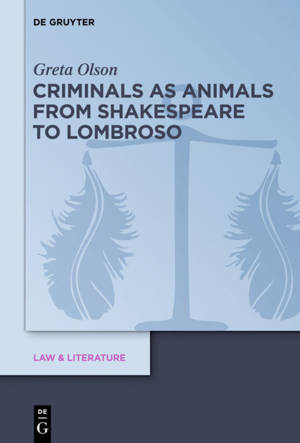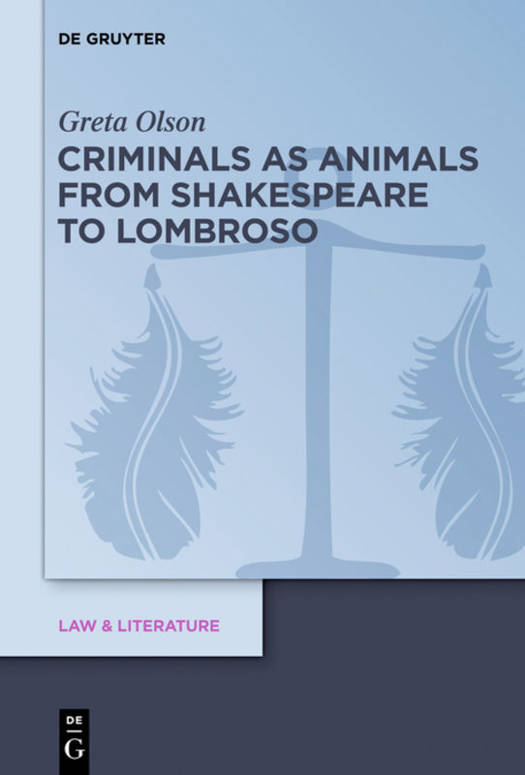
- Retrait gratuit dans votre magasin Club
- 7.000.000 titres dans notre catalogue
- Payer en toute sécurité
- Toujours un magasin près de chez vous
- Retrait gratuit dans votre magasin Club
- 7.000.0000 titres dans notre catalogue
- Payer en toute sécurité
- Toujours un magasin près de chez vous
Description
Criminals as Animals from Shakespeare to Lombroso demonstrates how animal metaphors have been used to denigrate persons identified as criminal in literature, law, and science. Its three-part history traces the popularization of the 'criminal beast' metaphor in late sixteenth-century England, the troubling of the trope during the long eighteenth century, and the late nineteenth-century discovery of criminal atavism. With chapters on rogue pamphlets, Shakespeare, Webster, Jonson, Defoe and Swift, Godwin, Dickens, and Lombroso, the book illustrates how ideologically inscribed metaphors foster transfers between law, penal practices, and literature. Criminals as Animals concludes that criminal-animal metaphors continue to negatively influence the treatment of prisoners, suspected terrorists, and the poor even today.
Spécifications
Parties prenantes
- Auteur(s) :
- Editeur:
Contenu
- Nombre de pages :
- 366
- Langue:
- Anglais
- Collection :
- Tome:
- n° 8
Caractéristiques
- EAN:
- 9783110339772
- Date de parution :
- 12-12-13
- Format:
- Livre relié
- Format numérique:
- Genaaid
- Dimensions :
- 160 mm x 234 mm
- Poids :
- 657 g

Les avis
Nous publions uniquement les avis qui respectent les conditions requises. Consultez nos conditions pour les avis.






